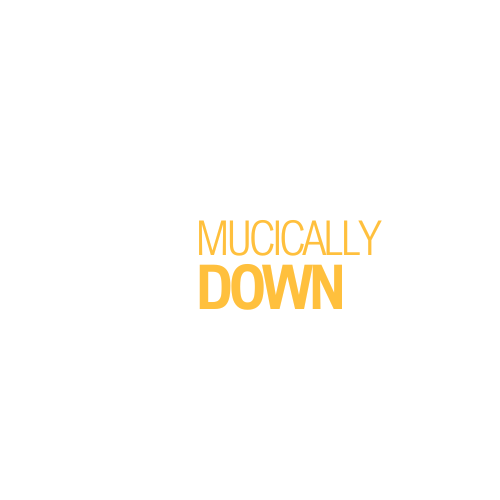In the world of music, there’s a treasure trove of information that often goes unnoticed – discographies. But what exactly are discographies? They’re more than just a simple list of recordings.
A discography is a comprehensive catalogue of musical recordings, particularly those of a particular performer or composer. It’s a vital resource for music enthusiasts, historians, and researchers alike, offering a deep dive into an artist’s creative journey.
In the following sections, we’ll explore the significance of discographies, their structure, and how they continue to shape our understanding of music history. So, whether you’re a seasoned music aficionado or a casual listener, stay tuned to discover the fascinating world of discographies.
What are Discographies
 Discographies manifest as comprehensive catalogs of music recordings. More specifically, they chronicle the entire auditory output of an individual performer, group, or composer, containing significant details. Examples of such details include the names of music tracks, release dates, and recording locations. In some instances, discographies display added information such as sales certifications and chart positions. Discographies hold a significant position in music history. They serve as practical repositories of information, acting as a crucial foundation in the study and appreciation of music. Historians, researchers, and music enthusiasts alike draw upon these catalogs in their studies or endeavors of musical eras, performers, and composition contexts. For example, the discography of The Beatles provides an exhaustive chronological record of their releases, aiding in the exploration of their music evolution and their impact on the music industry.
Discographies manifest as comprehensive catalogs of music recordings. More specifically, they chronicle the entire auditory output of an individual performer, group, or composer, containing significant details. Examples of such details include the names of music tracks, release dates, and recording locations. In some instances, discographies display added information such as sales certifications and chart positions. Discographies hold a significant position in music history. They serve as practical repositories of information, acting as a crucial foundation in the study and appreciation of music. Historians, researchers, and music enthusiasts alike draw upon these catalogs in their studies or endeavors of musical eras, performers, and composition contexts. For example, the discography of The Beatles provides an exhaustive chronological record of their releases, aiding in the exploration of their music evolution and their impact on the music industry.
Types of Discographies
Differentiating between types of discographies provides a more comprehensive grasp of their importance. They categorize into Artist Discographies, Label Discographies, or Genre-Specific Discographies.
Artist Discographies
Artist Discographies serve as exhaustive inventories of an artist’s body of work. They include every record, single, and special edition released by the artist, broken down by dates and details about each project. For example, Elvis Presley’s artist discography encapsulates the entirety of his fruitful career, from “Heartbreak Hotel” in 1956 to “Way Down” in 1977.
Label Discographies
Label Discographies, contrastingly, focus on the releases under a specific record label. They offer insights into the range of artists tied to the label, and the stylistic trends characterizing its sound. Sun Records, known for signing Johnny Cash, Roy Orbison, and Elvis Presley, houses a discography that depicts the evolution of rock and roll through the mid-1950s to the 1960s.
Genre-Specific Discographies
Genre-Specific Discographies concentrate on the releases within a particular music genre. They operate as an invaluable tool for studying the evolution and progression of a particular genre or sub-genre over time. Consider, for example, the discography of jazz music, which unfurls the stylistic nuance and transformation of the genre from ragtime and swing to bebop and cool jazz.
Creating a Discography
 Crafting a discography is a careful undertaking, steeped in meticulous research and categorization. The avenues for information gathering and potential challenges in documentation often serve as the primary stumbling blocks in this process. Creating a well-organized discography starts with gathering information. This usually entails examining music databases, researching online catalogs, and scouring music archives. Additionally, tangible resources such as vinyl records, CDs, and cassette tapes contain album information, while other sources could include concert setlists, ticket stubs, and promotional materials. For instance, if one aims to document The Beatles’ discography, they’d access comprehensive music databases, take advantage of online archives, and potentially review physical albums to ensure accuracy and completeness.
Crafting a discography is a careful undertaking, steeped in meticulous research and categorization. The avenues for information gathering and potential challenges in documentation often serve as the primary stumbling blocks in this process. Creating a well-organized discography starts with gathering information. This usually entails examining music databases, researching online catalogs, and scouring music archives. Additionally, tangible resources such as vinyl records, CDs, and cassette tapes contain album information, while other sources could include concert setlists, ticket stubs, and promotional materials. For instance, if one aims to document The Beatles’ discography, they’d access comprehensive music databases, take advantage of online archives, and potentially review physical albums to ensure accuracy and completeness.
| Information Gathering Techniques | Examples |
| Music Databases | AllMusic, Discogs |
| Online Archives | The Internet Archive |
| Physical Albums | Vinyl Records, CDs, Cassette Tapes |
| Promotional Materials | Concert Posters, Ticket Stubs |
Challenges in Documentation
 Discography documentation presents a handful of hurdles. Discrepancies in album release dates, complications in tracking down out-of-print or unavailable music, and the continuous task of updating the discography, especially with active artists, are some pertinent challenges.
Discography documentation presents a handful of hurdles. Discrepancies in album release dates, complications in tracking down out-of-print or unavailable music, and the continuous task of updating the discography, especially with active artists, are some pertinent challenges.
For example, a global superstar like Beyoncé releases new music periodically – keeping her discography up-to-date is a consistent effort. Additionally, a vintage artist’s out-of-print album demands rigorous searching, and discrepancies in release dates, especially with international artists, add an additional layer of complexity. Maintaining accuracy in a discography therefore demands persistent and attentive scrutiny.

